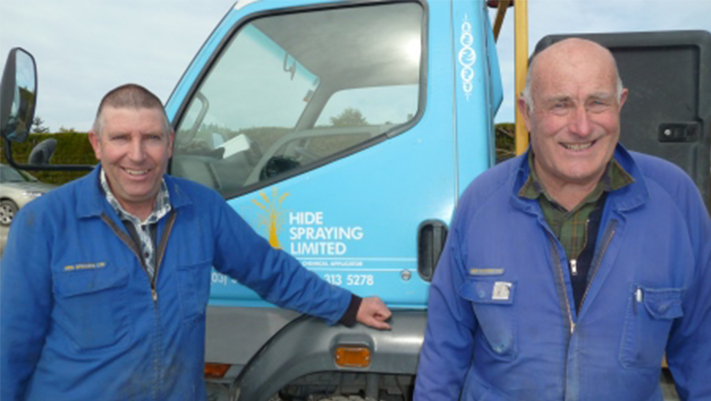Betanal quattro case study - Andrew Hide, North Canterbury
About
-
Category
- Product News
- Grower Stories
-
Date
01 September, 2016
-
Location
North Canterbury
About
Category
- Product News
- Grower Stories
Date
01 September, 2016
Location
North Canterbury

Richard’s Amuri region is home to some of the largest dairy units in the country, and as farmers have become more confident cropping beet, the interest in them as a viable supplement has increased considerably.
With business partner Aly Youngman, Amuri Spraying had clients with a total of about 1500ha in fodder beet last year, and that included an increase in non- irrigated country going into the beet.
Areas dedicated to fodder beet vary, with some larger operators setting aside up to 40ha for the crop which is managing to return up to 25tDM a hectare on well managed irrigated areas.
With the increased experience of planting the beet, good timing, an early start and close attention to crop husbandry early on in the establishment phase are proving to be critical to achieving the high yielding crops that can make the beet such a good value supplement.
For Richard a key component of that early establishment process is use of Betanal Quattro as a single solution spray for post emergent weed control.
He ensures the first application goes on at the two leaf stage, returning for a second application 10 days later. He continues to find Betanal delivers the complete knock down required early in crop establishment to ensure beet plants dominate any weed populations.
Covering a lot of ground for treatments around the region often means intense time pressure to ensure all clients crops are done when conditions are ideal, particularly when winds can disrupt the best laid spray plans.
Richard has found the 15litre “one mix” containers of Betanal Quattro has cut down on mixing time, and the amount of product he has to cart around between jobs.
He continues to find Betanal Quattro is an easily used spray, mixing well with no tank residue and delivers weed control at least comparable to the “three mix” solution used earlier.
"Most of our clients are now also very well supported by agents, and we also work closely with Bayer Crop Science’s regional manager David Parker who keeps everyone in the loop on conditions and any weed issues."
Richard is confident farmers’ ability to grow good quality fodder beet crops will only grow over time, as they invest the time and effort early on at establishment to minimise any weed problems.
"When it comes down to it the beets are still quite a cheap crop to grow if you can get the yield in there, and that all comes down to preparation."



